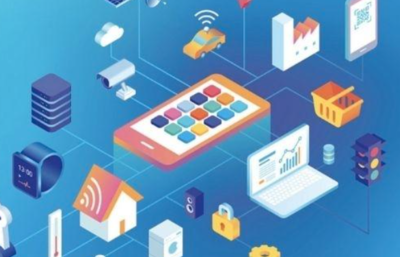- News
- Business News
- India Business News
- Bioreactors to building OS: Deep tech ventures in India are maturing fast
Bioreactors to building OS: Deep tech ventures in India are maturing fast

She and her team developed a microbial catalyst.But then, as she started talking to potential customers, she realised most of them don’t have space for a large bioreactor. So she had to come up with a way to make reactors much smaller than traditional ones, and also make them modular in order to scale them. She succeeded in building arrays of small connected reactors with automation and IoT technologies. The IoT capability also allowed her to monitor and run the reactor remotely. Combined with AI/ML, it also allowed the conversion process to change automatically if the salt or carbon content in the water changed. Normally, an operator on site would have to deal with such changes.
Rao’s product is already in the market, being used by one of India’s biggest steel makers, as also by oil & gas companies overseas. A completely autonomous system is still in the works. “We could be the first in the world to get to market with a product like that, and execute it in such a way that the value will be apparent very quickly,” Rao says.
Rao’s Ossus Biorenewables – which combines biology, electrical, electronic and mechanical engineering, as also AI/ML and IoT – is among the 12 finalists of the Qualcomm Design in India Challenge this year. We spoke to a number of the finalists, and each one is building a fascinating venture – a sign of how much India’s deep tech ecosystem has progressed.
Vaishali Chinnayya’s Nimble Vision has built an IoT platform that can do water and energy analytics. They have built a smart water level controller and consumption tracker, and a water flow meter with auto invoicing and payment that are being used by many.
Padmini Balaram and Pranav Singanapalli’s Emote Electric is developing what promises to be a sophisticated geared electric vehicle. Balaram says it will come with removable batteries that you can charge at home, and a provision to put multiple batteries to increase driving range to 450 km.
Megha Midha and Mayank Midha’s M3 Toilet Resources has built prefabricated steel toilets – for underserved areas – that use IoT-enabled sensors and automation technologies to understand when a user enters and exits, understand exactly how much water to use, and automatically clean the toilets.
But doing such hardware ventures in India is not easy. Balaram says funding and talent are big challenges. Specialised talent is expensive. And most of these ventures spend a lot of time training new hires.
Venture capitalists still have not warmed up to the space. But Rao says there are plenty of government and private grants available. Those have sustained her venture. “Money keeps coming as long as you’re an innovative company and won’t be outcompeted by the closest copy from China,” she says.
A lot of support is also now coming from the technology biggies, often through their accelerator programmes. Rao says she benefited enormously from the Shell E4 accelerator programme. All of the Qualcomm finalists expect to benefit from Qualcomm’s mentors, patent filing experts, and business connections. Bharadwaj says she has been blown over by the support she has received from Qualcomm, and even IBM executives. “The other day I messaged a Qualcomm exec saying I couldn’t find a component anywhere globally, and the next morning they sent a list of four vendors who had the component and asked us to connect with them. They are not mentors anymore. They are a part of the team and they are equally excited about what we are doing and equally sad about what we are not able to do,” she says.
We have been part of two corporate accelerator programmes, including Shell E4. These are really helpful. There are also government grants and private grants you can use. Money keeps coming as long as you’re an innovative company and won’t be outcompeted by the closest copy from China.

I have been part of two Qualcomm programmes, and it has been an exceptional journey. We were assigned a Qualcomm veteran as a mentor. And he gave so much of his time to us, introduced us to others. Qualcomm helped us find components when we were struggling to get them.

We make water management smart. Our biggest challenge is sourcing components. We import PCBs and sensors from China. But that is a problem now. We are overcoming that by sharing our designs with other vendors, working on them together, sometimes changing the designs.

We are building geared electric vehicles. Funds and talent are big challenges. Those who come out of colleges lack practical experience; our education system must change. Designing and making hardware is expensive, takes time. VCs don’t have a long-term vision. Government must strengthen the ecosystem.

As the scale of our smart toilet operations rises, the requirement for efficient data analysis is becoming important. We want to integrate equipment that can handle so many data points. We are working with Qualcomm to leverage their platform for this. They are also helping with patent applications.















